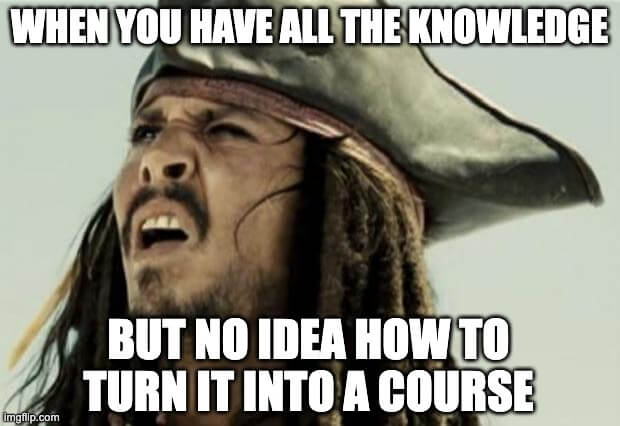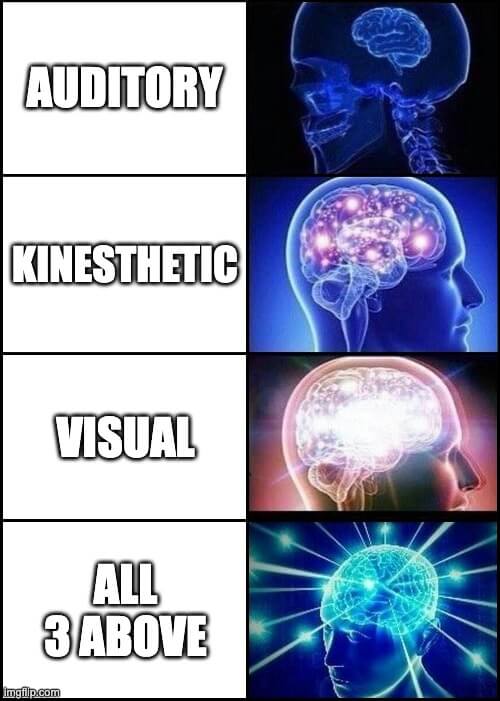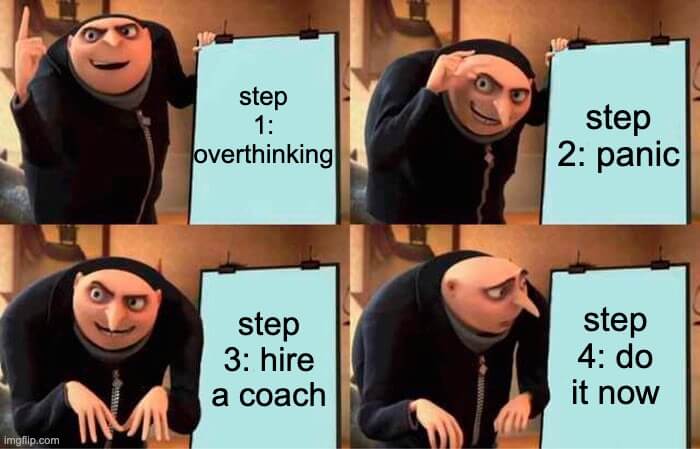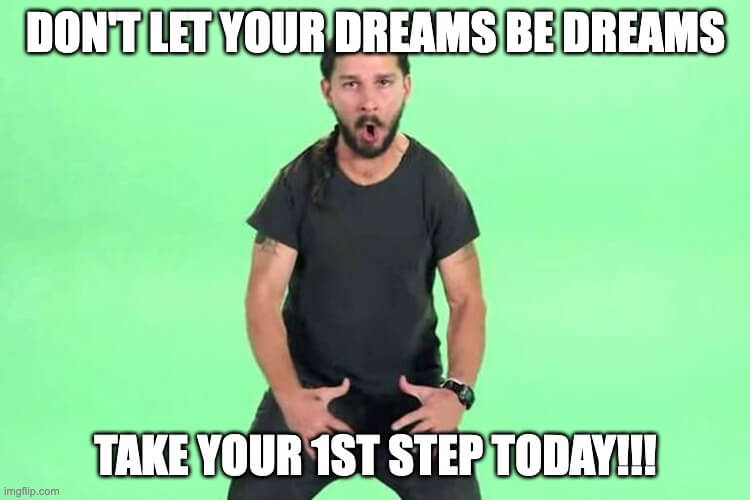No time to waste? I got you.
Go here for the MC method. Go here for the 5 steps to create successful online courses.
The e-learning market is expected to grow from $354.71 billion in 2025 to $625.3 billion by 2029, at a compound annual growth rate (CAGR) of 15.2%.

Source: The Business Research Company
Whether you’re an entrepreneur, educator, or professional looking to share your expertise, creating an online course is one of the most effective ways to scale your impact and income.
However, turning your knowledge into a well-structured, engaging, and profitable course can be overwhelming without expert guidance.

That’s why we wrote this blog post to equip you with actionable strategies.
What is Course Creation Coaching?
It’s a specialized service designed to help individuals and businesses develop high-quality online courses.
A coach works with you to:
Identify your target audience and validate your course idea.
Design a curriculum that aligns with learners’ needs.
Create engaging content using innovative formats like gamification or storytelling.
Develop marketing strategies for a successful launch.
Set up the technical infrastructure for delivering your course.

Unlike generic tutorials or DIY guides, coaching provides tailored advice based on your goals and challenges. Whether you’re starting from scratch or optimizing an existing course, a coach ensures you stay on track and avoid common pitfalls.
Why Do You Need a Coach to Create Courses?
Creating an online course isn’t as simple as recording videos and uploading them to a platform.
To stand out in today’s competitive market, your course needs to be well-structured, engaging, and impactful.
Here’s why working with a coach can make all the difference:
1/ Clarity on Content and Audience
A coach helps you refine your course idea by identifying your ideal audience and their pain points. They’ll guide you in choosing topics that are not only aligned with your expertise but also in demand. Because it’s no use creating the perfect course if no one wants, let alone buys.
2/ Save Time and Avoid Overwhelm
From curriculum design to tech setup, there are countless moving parts in course creation. A coach streamlines this process by providing templates, tools, and step-by-step guidance.
3/ Use Engaging Formats
Many courses fail because they rely on outdated formats like long lectures or static PDFs.
Coaches help you explore approaches such as:
Gamified Learning: Incorporate game-like elements (e.g., badges, leaderboards) to boost engagement.
Interactive Community-Based Courses: Build forums or groups where students can collaborate and share insights.
Storytelling: Use real-life examples or case studies to make lessons relatable.
These formats not only improe the learning experience but also improve retention rates.
4/ Tailor Courses to Diverse Learning Styles
Every learner is different—some prefer visual aids like videos or infographics, while others benefit from hands-on activities or auditory content like podcasts.
A coach helps you design lessons that cater to various learning styles:
Visual Learners: Use diagrams, charts, or video demonstrations.
Auditory Learners: Include narrated lessons or discussions.
Kinesthetic Learners: Add interactive exercises or downloadable worksheets.
The best ones use all 3 to make sure all the bases are covered. This ensures that your course resonates with a wider audience.

The Course Creation Process
Step 1: Defining Your Audience and Goals
The 1st step in creating a successful course is understanding who you’re creating it for.
A coach helps you:
Define your ideal learner persona.
Identify their challenges and goals.
Align your course objectives with their needs.
E.g. If you’re targeting small business owners who want to improve their marketing skills, your coach can help you tailor the content specifically for that audience.
Step 2: Validating Your Course Idea
Before investing time and money into creating a course, it’s crucial to validate your idea.
Coaches use proven methods such as:
Conducting surveys or interviews with potential learners.
Analyzing competitors’ courses to identify gaps in the market.
Testing demand through pre-sales or pilot programs.
This ensures that there’s a real audience willing to pay for your course.
Step 3: Designing Your Curriculum
A well-organized curriculum is the backbone of any successful course.
Coaches assist with:
Breaking down complex topics into manageable modules.
Creating clear learning objectives for each lesson.
Structuring content in a logical flow that keeps learners engaged.
For instance, if you’re teaching graphic design, your curriculum might start with basic tools before progressing to advanced techniques like typography or branding.
Step 4: Developing Engaging Content
Content creation can be one of the most daunting parts of building a course.
A coach helps you:
Choose the right format (e.g., video lectures, PDFs, quizzes).
Repurpose existing materials (e.g., blog posts or webinars) into course content.
Use storytelling techniques to make lessons more relatable.
They’ll also ensure that your content caters to different learning styles—visual, auditory, and kinesthetic—so all learners stay engaged.
Step 5: Setting Up Your Tech Infrastructure
Choosing the right platform to sell your course can be overwhelming with so many options available (e.g., CartMango, Teachable, Thinkific). Coaches simplify this process by recommending tools that fit your needs and budget.
They’ll also guide you through:
Setting up a learning management system (LMS).
Integrating payment gateways for seamless transactions.
Ensuring your platform is user-friendly for both you and your students.
Step 6: Marketing and Launching Your Course
Even the best courses won’t sell if no one knows about them.
Coaches provide actionable strategies for promoting your course effectively:
Building an email list through lead magnets like free webinars or guides.
Crafting high-converting sales pages that highlight the benefits of your course.
Running targeted ads on platforms like Meta or Google.
They’ll also help you plan a launch timeline that creates buzz and drives enrollment during the initial release period.
Repurpose Existing Content into Courses
If you’ve already created content—such as blog posts, webinars, or recorded coaching sessions—you’re sitting on a treasure trove of material that can be transformed into an online course.
Repurposing existing content not only saves time but also ensures consistency in your messaging and teaching style.
Course creation coaches specialize in helping clients identify and repurpose their best content efficiently.
Here’s how they do it:
1/ Transcribe Recorded Sessions
Many professionals already have valuable insights stored in recorded coaching sessions, podcasts, or webinars. Tools like Fathom, Descript and Otter can transcribe these recordings into written text, which can then be edited into lesson scripts or downloadable resources.
E.g. if you’re a life coach with dozens of recorded client sessions, your coach might help you extract recurring themes—like goal setting or overcoming procrastination—and turn them into structured modules.
2/ Extract Key Themes from Blog Posts
If you’ve been blogging for a while, chances are you’ve covered topics that resonate with your audience. A coach will help you group related articles into cohesive modules and expand on them with additional insights or exercises.
Example:
A fitness blogger might combine posts about meal planning, workout routines, and recovery tips into a comprehensive course on “Building a Sustainable Fitness Lifestyle.”
3/ Turn Webinars into Modules
Webinars are often packed with valuable information but tend to be too long for course lessons. Coaches can guide you in breaking down webinar recordings into shorter segments that fit within a structured curriculum. Tools like Loom make it easy to edit recordings into bite-sized lessons.
4/ Add Interactive Elements
Repurposed content becomes more engaging when paired with interactive features like quizzes, assignments, or discussion prompts. Coaches can suggest ways to integrate these elements seamlessly.
–
By leveraging what you’ve already created, you can save time while ensuring your course feels polished and professional.
The Mini-Courses (MC) Method
Mini-courses are short-form online programs that focus on specific topics within your broader expertise. They’re an excellent strategy for building trust with potential clients while generating leads for larger programs.
Why Mini-Courses Work
1/ Low Commitment
Mini-courses are typically more affordable and require less time from learners compared to full-length courses. This makes them an attractive option for people who are curious about your expertise but hesitant to make a big investment upfront.
2/ Lead Generation
Offering a mini-course as a lead magnet allows you to capture email addresses and build relationships with potential customers. Once students experience the value of your teaching style, they’re more likely to invest in higher-ticket offerings like memberships or coaching packages.
3/ Showcase Expertise
A well-designed mini-course demonstrates your knowledge and ability to deliver results. It’s an opportunity to build credibility and establish yourself as an authority in your niche.
How Coaches Help Create Mini-Courses
A coach can guide you in developing a mini-course:
1/ Choosing a Focused Topic
Mini-courses should address 1 specific problem or goal:
A nutritionist might create a mini-course on “Meal Prep for Beginners.”
A graphic designer could offer “Mastering Canva Basics.”
Coaches help you identify topics that align with your expertise while appealing to your target audience.
2/ Structuring Content
Mini-courses typically consist of 3–5 concise lessons that deliver quick wins for students. A coach will help you organize the content logically and ensure each lesson builds on the previous one.
3/ Designing an Upsell Strategy
The ultimate goal of a mini-course is to guide students toward enrolling in more comprehensive programs. Coaches can help you craft upsell strategies, such as offering discounts on full-length courses or including bonus materials for those who upgrade.
Mini Course Real Example: Amy Porterfield
Amy Porterfield is a well-known digital marketing expert who uses free mini-courses as part of her lead generation strategy.
For example, her mini-course on list-building strategies offers actionable tips while introducing students to her teaching style.
This approach not only attracts thousands of leads but also primes them for enrollment in her flagship program, “Digital Course Academy.” It’s a perfect example of how mini-courses can act as powerful entry points for larger offerings.
Common Course Creation Challenges

Even with expert guidance, creating an online course comes with its own set of challenges.
Here’s how coaches help clients overcome these obstacles:
Challenge 1: Overwhelm
The sheer number of tasks involved—content development, tech setup, marketing—can feel overwhelming. Coaches break down the process into manageable steps so clients can focus on one thing at a time without feeling paralyzed by the bigger picture.
Challenge 2: Imposter Syndrome
Many aspiring course creators doubt whether they’re “qualified” enough to teach others. Coaches provide reassurance by helping clients recognize their unique value and frame their expertise in ways that resonate with learners.
Challenge 3: Fear of Failure
Launching a course is intimidating, especially if it’s your first time. Coaches guide clients through strategies like pre-selling or running pilot programs to test demand and minimize risks before scaling up production efforts.
Challenge 4: Technical Difficulties
From choosing the right LMS (Learning Management System) to recording high-quality videos, tech issues are common roadblocks for many creators. Coaches simplify this by recommending user-friendly tools and providing step-by-step instructions for setup.
Tools and Resources Recommended by Course Creation Coaches
Creating a successful online course requires the right tools to streamline the process and deliver a professional product. Course creation coaches often recommend specific platforms and software to help with everything from content development to marketing.
Here are some of the top tools you can use:
1/ Learning Management Systems (LMS)
These platforms host your course content and manage student enrollment.
Kajabi: Known for its all-in-one capabilities, Kajabi allows you to build, market, and manage your courses from a single dashboard. It also offers analytics tools to track engagement and sales performance.
Teachable: A user-friendly platform ideal for both beginners and seasoned creators. It includes features like customizable templates, email marketing tools, and affiliate program support.
Thinkific: Offers interactive features like quizzes, assignments, and progress tracking. It’s perfect for engaging students throughout their learning journey.
2/ Content Creation Tools
These tools help you produce high-quality videos, slides, and other materials.
Canva: A beginner-friendly design platform for creating course slides, PDFs, and visuals. Its drag-and-drop interface makes it easy to design professional-looking content.
Camtasia: A video editing tool that lets you record screen tutorials and edit them with ease.
Descript/Fathom: Transcribes audio/video content into text, making it easy to repurpose recordings into written lessons or downloadable resources.
3/ Marketing Tools
Promoting your course effectively is essential for success.
BirdSend: A simple email marketing tool built for solo course creators and coaches that allows you to quickly send one-off email broadcasts and set up evergreen sequences.
Meta Ads: Run targeted ad campaigns to reach your ideal audience.
4. AI-Powered Tools
AI tools can simplify various aspects of course creation. Use them for brainstorming ideas, generating lesson outlines, or helping to create promotional content.
By leveraging these tools alongside expert guidance from a coach, you can save time and create a polished course that stands out in the market.
5. Cart/Order-Taking System
CartMango is the fastest cart/order-taking tool for solo course creators and coaches. It’s not only fast to set up (< 1 minute), it’s also totally free to use in 2025.
DIY vs. Coaching: Which Path is Right for You?
If you’re considering creating an online course, you might wonder whether to go it alone or invest in course creation coaching.
Here’s a comparison of the two approaches:
| DIY Approach | Help From Coaches |
|---|---|
| Lower upfront cost | Higher upfront investment |
| Requires self-discipline | Provides accountability |
| Risk of trial-and-error mistakes | Avoids common pitfalls |
| Learning curve for tools/platforms | Streamlined process with expert advice |
| Flexible timeline | Structured plan for faster results |
When DIY Might Be Right for You
If you have prior experience with course creation or enjoy learning new skills independently, the DIY route might be a good fit. However, be prepared to invest significant time in research and trial-and-error.
Why Coaching Is Often Worth the Investment
For most people—especially those new to online courses—coaching provides the structure and support needed to succeed. Coaches help you avoid costly mistakes, save time, and create a product that delivers real value to learners.
Accountability Systems for Course Completion
One of the biggest challenges in online education is ensuring students complete the courses they enroll in. Many learners drop out due to lack of motivation or engagement.
Course creation coaches can help implement accountability systems that improve completion rates.
Strategies for Accountability
1/ Progress Tracking
Use LMS platforms like Thinkific or Kajabi that allow students to track their progress through modules. Visual indicators (e.g., percentage completed) motivate learners to keep going.
2/ Gamification
Use gamified elements like badges, leaderboards, or rewards for completing lessons.
3/ Community Support
Build an interactive community where students can share their progress, ask questions, and support each other. Coaches often recommend creating private Facebook groups or using platforms like Circle or Skool for this purpose.
4/ Live Q&A Sessions
Schedule regular live sessions where students can interact with you directly. This not only provides additional value but also keeps learners accountable by giving them deadlines for completing modules before each session.
5 /Certificates of Completion
Offer certificates as tangible rewards for finishing the course. This adds credibility to your program while motivating students to see it through to the end.
Real Case Study: Graham Cochrane’s $120K Launch
Graham Cochrane, founder of The Recording Revolution, launched his first online course with expert coaching support. Despite initial doubts about whether his audience would pay for his content, Graham followed his coach’s advice to pre-sell the course before creating it.
The result?
He generated $120,000 in revenue during his first launch by validating demand upfront and delivering exactly what his audience needed. This success story highlights how strategic planning and expert guidance can lead to incredible results.
Source: Tilt
What Next? Start Your Course Creation Journey Today
Creating an online course is one of the most rewarding ways to share your knowledge and impact lives on a global scale. But doing it alone can be overwhelming—and costly if mistakes are made along the way.
With course creation coaching, you gain access to expert guidance tailored specifically for your goals. From repurposing existing content into engaging modules to leveraging innovative formats like gamification or mini-courses, coaches ensure every aspect of your course is optimized for success.
Magical things happen when you take the 1st step. Take yours today.

Frequently Asked Questions
1/ What is course creation coaching and how does it work?
Course creation coaching is a personalized service where an expert guides you through the process of planning, designing, and launching an online course.
Coaches help with tasks like validating your course idea, structuring your curriculum, creating engaging content, setting up tech platforms, and marketing your course effectively. It’s a collaborative process designed to save time, avoid mistakes, and ensure your course delivers value to learners.
2. How do I know if I need a course creation coach?
If you’re feeling overwhelmed by the idea of creating a course or unsure where to start, a coach can be invaluable.
They’re especially helpful if:
You want to save time and avoid trial-and-error.
You’re not confident in your ability to structure or market the course.
You need accountability to stay on track.
Coaches provide expertise and resources that make the process smoother and more efficient.
3. What types of courses can a coach help me create?
Mini-courses: Short programs focused on specific topics.
Full-length courses: Comprehensive programs covering multiple modules.
Hybrid courses: Combining live sessions with pre-recorded materials.
Membership academies: Subscription-based learning platforms.
Coaches tailor their guidance to your goals and audience needs.
4. How much does course creation coaching cost?
The cost of coaching varies depending on the coach’s experience, the level of support offered, and the program format (e.g., one-on-one vs. group coaching).
Prices can range from a few hundred dollars for group programs to several thousand for personalized one-on-one coaching. While it’s an investment, the ROI can be significant if your course is successful.
5. Can I repurpose existing content into an online course?
For sure. Many people already have valuable content—such as blog posts, webinars, or recorded sessions—that can be transformed into a course.
A coach can guide you in repurposing this material efficiently by:
Transcribing recordings into lesson scripts (using tools like Descript).
Grouping related blog posts into cohesive modules.
Breaking down webinars into shorter video lessons.
This approach saves time and ensures consistency in your messaging.
Related Reading
- SendOwl vs SamCart: The Recurring Revenue Jail (2026)
- ThriveCart vs ClickFunnels: When more features hurt (2026)
- SendOwl vs Payhip: The “You-Leave-You-Lose” Model (2026)
- SamCart vs Kajabi: The Income Hostage Trap (2026)
- Sellfy vs Payhip: The Recurring Revenue Prison (2026)
- Podia vs Gumroad: The Recurring Revenue Handcuffs (2026)
- SendOwl vs Gumroad: The Recurring Revenue Black Hole (2026)
- Gumroad vs Sellfy: The Vendor Lock-in Cage (2026)
- Gumroad vs Payhip: The Hidden Trap for Creators (2026)
- ThriveCart vs SamCart – The Subscription Hostage Trap (2026)
